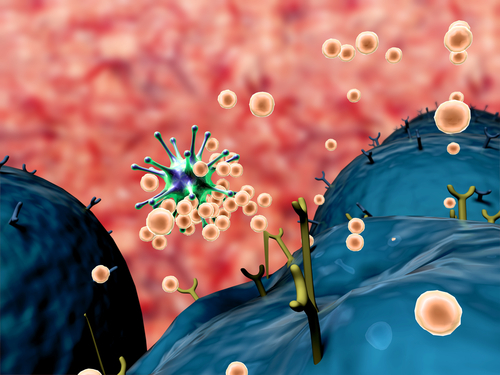Researchers generate human antibodies in the lab
IANS Jul 25, 2017
A new laboratory technique that will accelerate development of vaccines to protect people from a wide range of diseases has been reported by an international team of scientists.

Normally, vaccines induce B-lymphocytes or B-cells of the body's immune system to produce antibodies that fight against invading pathogens like viruses.In the new study, researchers have developed a method to rapidly produce specific human antibodies in the laboratory itself from B-cells isolated from patient blood samples and by replicating the same processes these cells use in the body to prevent infections.The technique, reported in the Journal of Experimental Medicine, could potentially accelerate the development of new vaccines by allowing the efficient evaluation of candidate target antigens, it is claimed.
The researchers, from Francis Crick Institute in London and the Ragon Institute of Massachusetts General Hospital in the US, successfully demonstrated their approach using various bacterial and viral antigens and proteins from several strains of influenza A.In each case, the researchers were able to produce specific high-affinity antibodies in just a few days and were also able to generate antibodies against HIV (which causes AIDS) from B-cells isolated from HIV-free patients.The scientists believe their approach will help researchers generate therapeutic antibodies within a shorter time frame in the laboratory for the treatment of infectious diseases and other conditions such as cancer.
-
Exclusive Write-ups & Webinars by KOLs
-
Daily Quiz by specialty
-
Paid Market Research Surveys
-
Case discussions, News & Journals' summaries